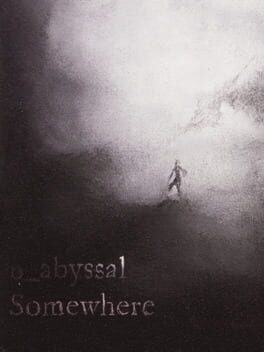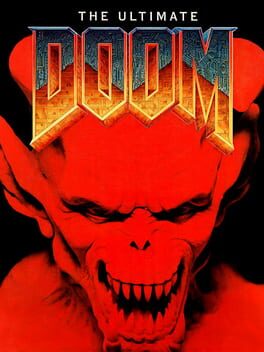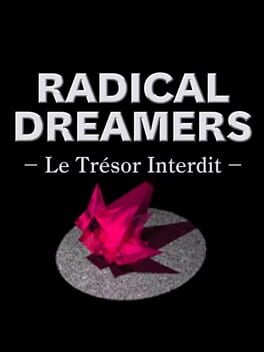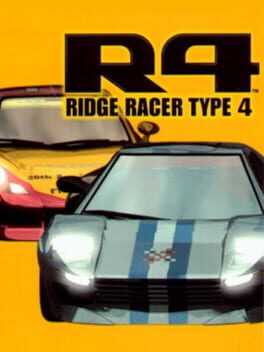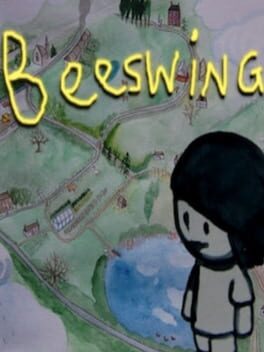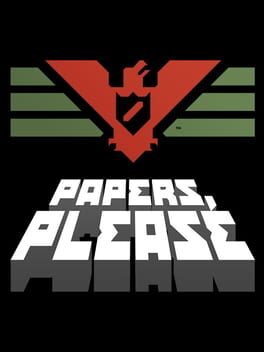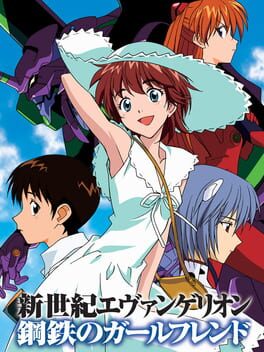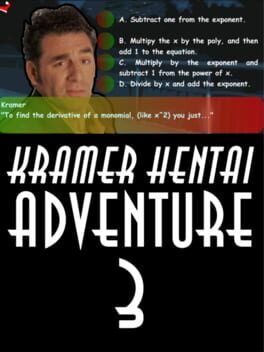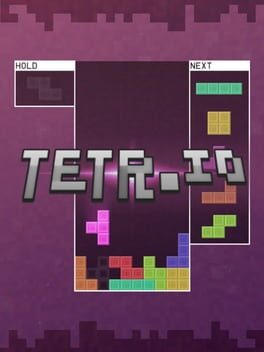2021
This game fucks. Brought me back to when I'd be playing Angband and NetHack or FTL on my dingy macbook pro in the back of my high school history class or during free periods, I would just become completely absorbed in each game's distinct rhythm. I've been going through a spot where I've just felt very unmotivated to play games and then with this I realized that rougelikes are my gaming nirvana, what I'm most attuned to outside JRPG's, and it's kinda given me a new lease on the medium, weirdly enough. Just a really enjoyable experience overall, legit great value for how cheap it is.
1994
Impeccable game to play while listening to Anri's Timely!!, barely managing to get through a level or two more than you did previously before rage-quitting due to the outrageous enemy placement, and then picking it back up again the next day because the central mechanic is just that well designed. Might be ignorant on my part but honestly the fact that the designers were able to implement such complex physics for the hook on the Super Famicom blows my mind, and I imagine they had to calculate all that themselves, none of that ripping kinematic code from github or toying with pre-built engine physics or whatever. Great stuff even with all the frustrations regarding enemy/level-design.
Also speedrunners again demonstrating they're gods among men: https://www.youtube.com/watch?v=vxdFixwMCpA&t=101s
Also speedrunners again demonstrating they're gods among men: https://www.youtube.com/watch?v=vxdFixwMCpA&t=101s
2018
Eh? I don't think the ideas this tackles are interesting or even really well explored (gaming as an art form really needs to move beyond the idea of interrogating the player's role in a game's story, what that means for agency for the player and characters, etc. Metal Gear Solid 2 already explored those ideas sufficiently while also tying those ideas to the emotional intentions of the narrative, which this fails to do). This is mostly a self-congratulatory critique of the medium that feels like it's pushing toward something bigger but never truly delivers (almost like how I feel about og Ghost in the Shell, now that I think about it). Feel like this follows in the same vein of modern horror movies whose director's create them because they want to make more "mature" genre fare when a lot of earlier works are far more interesting and mature than their creations. And this is coming from someone who's only played a bit of Higurashi and Tsukuhime but those are clearly superior works in terms of conveying the horror and off-kilter emotions attempted here.
It's attempting to deliver on the same dreamlike, in-between state of being that, say, the ending of Mulholland Drive delivers. And this is not to say that it really even compares to that, but its intentions are similar and the little mechanical/visual tricks it pulls to sell that narrative descent are genuinely neat, if surface level. But perhaps I'm just easily amused by those sorts of things, I love amorphous narrative modes; starting as one thing and then becoming another, which is something that I think should be explored mechanically more in games. Why not have a visual novel abruptly turn into a first-person adventure game in the middle to sell a certain emotion? But that's a difficult shift to achieve and would require someone of far more interesting thematic and mechanical sensibilities to be making games. Doki Doki Literature Club is child's play compared to whatever that would result in.
It's attempting to deliver on the same dreamlike, in-between state of being that, say, the ending of Mulholland Drive delivers. And this is not to say that it really even compares to that, but its intentions are similar and the little mechanical/visual tricks it pulls to sell that narrative descent are genuinely neat, if surface level. But perhaps I'm just easily amused by those sorts of things, I love amorphous narrative modes; starting as one thing and then becoming another, which is something that I think should be explored mechanically more in games. Why not have a visual novel abruptly turn into a first-person adventure game in the middle to sell a certain emotion? But that's a difficult shift to achieve and would require someone of far more interesting thematic and mechanical sensibilities to be making games. Doki Doki Literature Club is child's play compared to whatever that would result in.
I've finished both this and MGS3 several times but didn't finish here, I played through the Tanker mission while coming down off an acid trip. Still convinced that PS2 aesthetics are the peak of the medium, perfect simulacra. Remains next-level, can't imagine what it would've felt like to play it for the first time back in the day.
1995
Not much to say here, it's Doom. I have to admit that I'm not very good at it, oftentimes I just like to switch on god mode and all weapons and just zone out, which is made fun simply by the labyrinthine level design and the rhythm of the gunplay itself. God mode in COD for example wouldn't be nearly as interesting, the focus there is on a Michael Bay-esque overwhelming of the senses, wherein the popping in and out of cover amidst a hail of gunfire provides the central tension and rhythm; remove that tension and you have nothing. Doom's is based on movement and the haunted house-style enemy placement and level design which facilitates a need for the player to maintain 360 degree awareness, thus greater attention is paid by the player to the environment itself, item placement, etc. Just very engrossing, all things considered. Oftentimes though I'd switch on God Mode because the game reeks of artificial difficulty by way of just throwing waves of enemies at you when you're low on ammo and health, thus incentivizing save scumming and after a while the gameplay does begin to feel a bit repetitive. I'm ultimately more interested in playing Doom 2 which based on people on here's reactions is the superior game all in all.
Gonna be honest and say that I really don't care much for Chrono Trigger. I loved playing through it when I was 14 or 15 years old and then forgot about it very shortly after beating it, which to me speaks to it being a piece of media that is very impressive on the surface but ultimately doesn't have a lot to deliver on otherwise (of course this is coming from someone who hasn't played it all the way through in close to a decade). It's a nice cast of characters, it's well-paced, beautiful score, yada yada yada; people talk about it being a "perfect" game but I don't care much for "perfect" games, just as how I don't care for "perfect" films. Raw, wildly ambitious projects mixed with deeply personal narratives that are also very flawed (i.e Xenogears) are far more interesting and important to me than a game that's really well-designed and whatnot.
Radical Dreamers strikes me as the kind of project that holds in that same vein; though it's essentially a side-project, it also holds measurable ambition within it that's bursting from the seams of its visual-novel structure (and all on an add-on for the SNES no less). The repetition that comes with going through the same dialogue/multiple choice screens is a bit annoying but also somehow comforting, you gain a very intimate knowledge of the castle's layout despite it being conveyed through text, and the hints of the larger world outside the confines of Viper Manor speak to a desire to render that world, these feelings of loss and a desperate flailing against death, in a manner that the SNES could not convey and would eventually be made manifest in Chrono Cross. The writing itself is wonderful; this is the first VN I've ever really completed and while I don't care for its connections to Trigger it was the characters and the sulky, gothic tone and design that kept me interested. The ending is genuinely mind-blowing in the way that all my favorite pieces of art are, a wistful reflection on time stretched before you, contextualized by a moment where you broke into a dude's mansion to impress a girl you liked. Those are really the only important ideas for any piece of art to tackle: love, death and time, so all of that makes this a special game in its own right. May expand my thoughts on this here as I think on it.
Radical Dreamers strikes me as the kind of project that holds in that same vein; though it's essentially a side-project, it also holds measurable ambition within it that's bursting from the seams of its visual-novel structure (and all on an add-on for the SNES no less). The repetition that comes with going through the same dialogue/multiple choice screens is a bit annoying but also somehow comforting, you gain a very intimate knowledge of the castle's layout despite it being conveyed through text, and the hints of the larger world outside the confines of Viper Manor speak to a desire to render that world, these feelings of loss and a desperate flailing against death, in a manner that the SNES could not convey and would eventually be made manifest in Chrono Cross. The writing itself is wonderful; this is the first VN I've ever really completed and while I don't care for its connections to Trigger it was the characters and the sulky, gothic tone and design that kept me interested. The ending is genuinely mind-blowing in the way that all my favorite pieces of art are, a wistful reflection on time stretched before you, contextualized by a moment where you broke into a dude's mansion to impress a girl you liked. Those are really the only important ideas for any piece of art to tackle: love, death and time, so all of that makes this a special game in its own right. May expand my thoughts on this here as I think on it.
1998
beating the Grand Prix will probably be one of the greatest achievements of my gaming life once I get good enough to beat Phantomile. everyone talks about the adrenaline rush you get from playing Doom but few games elicit the kind of stress and elation that this one does; playing in first-person, watching the road become a gray blur beneath you while "thru" thrums in the background and successfully pulling off those insane hard turns is electrifying.
2014
Interesting art-style and frame narrative and I certainly had a multitude of intense emotions in the hour plus I spent with the game, but upon saving and leaving, intending to pick it up again, I found I had no desire to do so. That was about a month ago. Doesn't have a huge hook per say, the extent of your interactions is listening to other people go on and on and on about whatever they're thinking about, leaving some conversations feeling overwritten, thus making the actual pace of the game feel a bit scattered and sluggish. Don't know if I'll finish it, however I'd say that its conception as a game memoir is quite interesting and worth exploring in some other manner.
2013
TBD
1997
Fuck it, I wrote a loooong review where I went into great detail about how this is probably the most well-paced and constructed JRPG of all time and how it's also one of the most life-affirming works in the medium; where the final Omnislash against Sephiroth and how we the Player have to enact it is a perfect extension to us the Player of Cloud's arc about believing that he is (we are) enough, that the attempt to be as good as someone else, that we're not even worthy of being alive, is folly and that its thematic concerns of life and death are some of the most well-drawn in any work of fiction, but unfortunately I accidently deleted that review (somehow) in trying to edit it, so instead I will just relate one of my major points from that essay, what I was able to save, here instead:
This is far and away the most well-paced and structured video game of all time (which makes it all the more astonishing that Kazushige Nojima would go on to ditch all that nonsense like thematic and structural cohesion for Final Fantasy VIII, itself very under-rated if flawed), to the point that every single story-beat is firmly ingrained into my memory. What assists this sense of cohesion is the flow of gameplay from one pre-rendered background to another. Final Fantasy VIII is a gorgeous game, however when you compare its visual structure to that of VII's it becomes obvious which is the superior title. The expanded visual scope of VIII lends itself to having a lot of more-or-less useless and or uninteresting environments and transitional sections connecting the more memorable scenes. I could not for the life of me tell you how the various dungeons and story moments of VIII relate to each other beat-by-beat unless I were to do several more playthroughs, whereas with VII I could do so only after two full playthroughs. There are lots of straight-forward hallways and pathways and VIII is definitely a less vertically-focused game than VII, which means less finnicky movement across those backgrounds, but the focus on panning across environments means that there's less visual conciseness in VIII than in VII, as well as less emotional depth per scene.
What I mean by this is take, for example, the transition between the shots of the lab beneath Shinra Mansion and the dutch-angled hallway. Upon entering we're presented with an objective view of the space, overhead angle, and with the way the scene is lit our eyes are drawn to the light fixture hanging above the frame. It's set just to the point to where we can make out a brick pathway beneath it, and with the positioning of the bookshelves we subconsciously expect a hallway; thus we move toward it. With the transition into the dutch angle shot, we're immediately thrust into a subjective position alongside Cloud. This is emphasized by the vanishing point constructed by the shelves pointing toward Sephiroth the first two times we visit the area. This oscillation between objectivity and subjectivity feeds into the thematic focus of the entire game, and the mixture of tones infused by these two types of framings lends an emotional resonance that brands our understanding of the space that the designers then mine for emotional/narrative purpose upon us learning of Cloud's true background. Whereas with VIII our understanding of a space is relative only to our momentary attachment to it as a game-space (i.e dungeon, town, etc), VII uses the revisitation of environments as a way of relating to us that the world of Final Fantasy VII is truly a world, dense with echoing emotions and historical weight.
This is far and away the most well-paced and structured video game of all time (which makes it all the more astonishing that Kazushige Nojima would go on to ditch all that nonsense like thematic and structural cohesion for Final Fantasy VIII, itself very under-rated if flawed), to the point that every single story-beat is firmly ingrained into my memory. What assists this sense of cohesion is the flow of gameplay from one pre-rendered background to another. Final Fantasy VIII is a gorgeous game, however when you compare its visual structure to that of VII's it becomes obvious which is the superior title. The expanded visual scope of VIII lends itself to having a lot of more-or-less useless and or uninteresting environments and transitional sections connecting the more memorable scenes. I could not for the life of me tell you how the various dungeons and story moments of VIII relate to each other beat-by-beat unless I were to do several more playthroughs, whereas with VII I could do so only after two full playthroughs. There are lots of straight-forward hallways and pathways and VIII is definitely a less vertically-focused game than VII, which means less finnicky movement across those backgrounds, but the focus on panning across environments means that there's less visual conciseness in VIII than in VII, as well as less emotional depth per scene.
What I mean by this is take, for example, the transition between the shots of the lab beneath Shinra Mansion and the dutch-angled hallway. Upon entering we're presented with an objective view of the space, overhead angle, and with the way the scene is lit our eyes are drawn to the light fixture hanging above the frame. It's set just to the point to where we can make out a brick pathway beneath it, and with the positioning of the bookshelves we subconsciously expect a hallway; thus we move toward it. With the transition into the dutch angle shot, we're immediately thrust into a subjective position alongside Cloud. This is emphasized by the vanishing point constructed by the shelves pointing toward Sephiroth the first two times we visit the area. This oscillation between objectivity and subjectivity feeds into the thematic focus of the entire game, and the mixture of tones infused by these two types of framings lends an emotional resonance that brands our understanding of the space that the designers then mine for emotional/narrative purpose upon us learning of Cloud's true background. Whereas with VIII our understanding of a space is relative only to our momentary attachment to it as a game-space (i.e dungeon, town, etc), VII uses the revisitation of environments as a way of relating to us that the world of Final Fantasy VII is truly a world, dense with echoing emotions and historical weight.
2000
Oh wow what a twist.
Don't have much to say about it. Don't have much time for bullshit like trying to figure out exactly how the program wants you to write out "insert keycard," even after following the tutorial. Got three different endings, one of which was amusing but I didn't care to play further.
Don't have much to say about it. Don't have much time for bullshit like trying to figure out exactly how the program wants you to write out "insert keycard," even after following the tutorial. Got three different endings, one of which was amusing but I didn't care to play further.


